
Top Organic Skincare Ingredients And How They Transform Your Skin
Key Takeaways:
- Organic Skincare Supports Skin’s Natural Functions: Ingredients like jojoba and rosehip oil work with your skin, not against it, helping restore balance, hydration, and resilience without irritation.
- Antioxidant-Rich Botanicals Protect and Repair: Top organic skincare ingredients are rich in antioxidants that defend against environmental stressors and support healthy collagen production.
- Less is More With the Right Ingredients: A simple routine using a high-quality organic face toner and organic moisturizer can outperform multi-step routines packed with fillers and synthetics.
Could your skincare routine feel more like a ritual and less like a chore? The truth is, glowing, healthy skin doesn’t come from piling on layers — it comes from choosing ingredients that work in harmony with your body. Everything changes when you feed your skin with the same level of care you’d give to your diet. That’s the power of organic skin care built on purity, sustainability, and whole-plant nourishment.
At Sacred Rituel, we don’t follow beauty trends — we honor timeless plant wisdom. Every product we create is handcrafted with top organic skincare ingredients, sourced from regenerative farms and chosen for their healing potency. From our signature organic face moisturizers to our calming organic face toners, each formula is packed with antioxidants, nutrients, and life-force energy that delivers visible transformation — not just surface results.
In this piece, we’ll explore the organic ingredients we believe every skincare lover should know — and how they help repair, hydrate, and restore your skin naturally.
Why Choose Organic Skincare?
If you're someone who reads ingredient labels before making a purchase, you're not alone — and you're definitely on the right track. Choosing organic skin care means giving your skin the same kind of care you'd want from a fresh, organic meal: nutrient-rich, clean, and free from unnecessary additives.
Unlike conventional beauty products, which often rely on synthetic preservatives, artificial fragrances, or harsh chemicals, organic skincare uses plant-based ingredients grown without harmful pesticides or synthetic fertilizers. These ingredients are often cold-pressed, minimally processed, and retain their full potency.
Switching to products with top organic skincare ingredients protects your skin from irritation and inflammation. They feed it with essential vitamins, antioxidants, and fatty acids that promote natural healing and visible radiance. It's not just about what you avoid but what you gain—hydration, balance, glow, and long-term skin health.

What Makes An Ingredient Truly Organic?
Not all skincare ingredients are created equal, and when it comes to “organic,” the standards matter more than ever. True organic ingredients do more than just sound clean on the label; they carry the full power of nature, untainted by chemicals or synthetic processing. Here's what sets real organic ingredients apart:
Grown Without Harmful Chemicals
Truly organic ingredients are cultivated without synthetic pesticides, herbicides, or genetically modified organisms (GMOs). This protects not only your skin, but also the soil, water, and pollinators that support a healthy planet. Choosing organic means you're saying yes to clean beauty that starts at the source.
Processed Without Synthetic Additives
Once harvested, organic ingredients must be handled with care — no chemical solvents, artificial preservatives, or harsh refining processes. This ensures that each oil, extract, or botanical retains its healing nutrients. The result is a product that’s not just clean, but actually beneficial to your skin’s structure and function.
Cold-Pressed For Maximum Potency
Cold-pressing is a gentle extraction method that preserves the vital nutrients in oils and plant-based ingredients. Unlike heat-based or chemically extracted oils, cold-pressed ingredients retain their antioxidants, essential fatty acids, and vitamins. This makes them especially effective in products like our organic face moisturizer and organic skin care oils, where nutrient density is everything.
Better For Sensitive Skin And The Planet
Because they are free from synthetic residues and additives, organic ingredients are less likely to irritate sensitive or acne-prone skin. They also biodegrade naturally and are safer for waterways, making them a kinder choice for the earth. When you choose true organic, you're caring for your skin and the ecosystem.
Top Organic Skincare Ingredients You Should Know
When it comes to creating real results, not all plant-based ingredients are equal. The most effective organic skin care products use ingredients that do more than just moisturize — they repair, soothe, protect, and balance the skin on a deeper level. Here are some of the top organic skincare ingredients we believe truly transform your skin:
Jojoba Oil
Jojoba oil closely mimics the natural sebum your skin produces, making it one of the most balancing and compatible oils for all skin types. It helps regulate oil production, soften fine lines, and deliver long-lasting hydration without clogging pores. Its naturally antibacterial and anti-inflammatory properties make it a go-to for sensitive and acne-prone skin.
Rosehip Seed Oil
Packed with vitamins A and C, rosehip seed oil boosts collagen production and encourages skin cell turnover—making it highly effective for fading scars, diminishing hyperpigmentation, and smoothing fine lines. As outlined in the Benefits of Using Rosehip Oil on Your Face, its rich concentration of essential fatty acids also promotes deep hydration and supports skin regeneration. You’ll find this powerhouse ingredient in many formulas, including our organic face moisturizer.
Sea Buckthorn Fruit Oil
Sea buckthorn oil is a rare oil that contains all four types of omega fatty acids, making it incredibly nourishing. It's known for boosting skin elasticity, healing sun damage, and giving the complexion a radiant glow. This vibrant orange oil is one of the most prized ingredients for organic skin care that targets aging and dryness.
Pomegranate Seed Oil
Packed with punicic acid and antioxidants, pomegranate seed oil helps protect the skin against free radical damage while promoting collagen production. It deeply moisturizes and firms the skin, making it perfect for mature or sun-exposed skin types. It's also lightweight enough for daily use under makeup or alongside an organic face toner.
Chamomile Flower Extract
Chamomile is famous for its calming effects, and not just as tea. On the skin, it reduces inflammation, soothes redness, and supports the healing of irritated or sensitive areas. Its gentle, healing nature makes it ideal for anyone seeking a more soothing organic moisturizer experience.
Hemp Seed Oil
Hemp seed oil is loaded with omega-3 and omega-6 fatty acids, which soothe inflammation and strengthen the skin’s natural barrier. As highlighted in the Benefits of Hemp Oil, it’s effective for acne-prone or imbalanced skin, helping to regulate oil production while delivering deep hydration. This powerhouse ingredient plays a leading role in our formulas that focus on calming and rebalancing the skin.
Green Tea (Sencha) Extract
Green tea is packed with polyphenols, especially EGCG, which help protect skin cells from environmental damage and premature aging. Its antioxidant and anti-inflammatory benefits make it ideal for reducing redness, calming irritation, and supporting overall skin clarity. This makes it a perfect complement in products like our organic face toner, where daily defense and calm are essential.

How These Ingredients Transform Your Skin
Using clean, plant-based ingredients is only part of the equation. What really matters is how these ingredients interact with your skin’s natural processes. The top organic skincare ingredients do more than sit on the surface — they penetrate, nourish, and support the skin at a cellular level. Here’s how that transformation happens:
Deep Hydration That Lasts
Cold-pressed botanical oils like jojoba, chia, and marula mimic your skin’s own lipid structure, allowing for quick absorption without leaving a greasy film. They seal in moisture and reinforce your skin’s natural barrier, preventing transepidermal water loss. The result is skin that feels soft, looks plump, and stays hydrated all day long.
Soothing Inflammation And Redness
Ingredients like hemp seed oil, chamomile, and calendula are rich in anti-inflammatory compounds that calm reactive skin. Whether you're dealing with acne, rosacea, or environmental irritation, these botanicals help reduce redness and discomfort naturally. They're especially helpful in organic skin care products designed for sensitive skin types.
Boosting Collagen And Cell Regeneration
Antioxidant-rich oils such as rosehip, pomegranate, and sea buckthorn help promote collagen production and speed up skin renewal. This supports firmer, smoother skin and helps reduce the appearance of fine lines, scars, and sun damage. When used consistently in products like an organic face moisturizer, these ingredients visibly enhance skin texture over time.
Balancing Oil Production Naturally
Instead of stripping your skin, organic oils like jojoba and tamanu work with it, helping regulate sebum levels. This is especially important for oily or acne-prone skin, where over-cleansing can trigger more oil production. Balanced skin looks clearer, feels healthier, and is less prone to breakouts.
Tips For Choosing High-Quality Organic Skincare Products
Navigating the world of organic skin care can feel overwhelming with so many products claiming to be “clean” or “natural.” But truly effective skincare comes down to what’s inside the bottle, not just what’s printed on the label. If you're looking for the real deal, here are a few tips to help you choose the right products with top organic skincare ingredients:
- Read the Full Ingredient List: Always look beyond the front label. A product can claim to be “natural” while still containing synthetic fillers or preservatives. Scan for recognizable plant names — like jojoba, rosehip, and calendula — and ensure they’re listed near the top, meaning they’re used in high concentrations.
- Look for Certifications or Transparent Sourcing: While not all great brands have certifications, look for those that share where and how their ingredients are sourced. Reputable brands often work with regenerative or organic farms and will proudly mention this. Transparency is a good sign of integrity and quality.
- Choose Cold-Pressed, Not Refined Oils: Cold-pressed oils retain more vitamins, antioxidants, and essential fatty acids — all key for transformation. Refined oils may look the same, but they’ve likely lost most of their skin-nourishing power. This is especially important for products like an organic moisturizer or organic face toner, where potency and purity matter most.
- Avoid Artificial Fragrances and Fillers: Synthetic fragrance is one of the most common irritants in skincare. Instead, choose products scented with real essential oils or left unscented for sensitive skin. When a product smells good and is suitable for you, it’s a win-win.
- Consider Packaging and Shelf Life: High-quality organic skin care often comes in glass bottles — especially violet glass — to preserve the freshness of botanical oils. Look for air-tight packaging and small-batch production dates to ensure your product hasn’t degraded before it reaches your skin.

Final Thoughts
Choosing the right skincare isn’t about following fads — it’s about honoring your skin with ingredients that truly nurture and transform. By turning to top organic skincare ingredients like jojoba, rosehip, and sea buckthorn, you're not just applying product; you're embracing a ritual of nourishment rooted in purity, sustainability, and time-tested plant wisdom. Whether you’re seeking hydration, balance, or a radiant glow, these powerful botanicals offer more than surface-level results — they invite a deeper connection to your skin’s natural rhythm and resilience.
Read also:
- How To Read Labels: Identifying Truly Natural Skincare
- Natural Skincare Routine For Every Skin Type
- Top 10 Natural Ingredients For Glowing Skin
Frequently Asked Questions About Top Organic Skincare Ingredients
Are organic skincare ingredients better for long-term use?
Yes, organic ingredients are generally safer and more supportive for long-term skin health. They’re free from harmful chemicals that can build up over time and cause irritation. This makes them ideal for maintaining healthy skin well into the future.
Can organic skincare products expire faster than synthetic ones?
Yes, because organic products contain fewer preservatives and are made in small batches, they often have a shorter shelf life. It's important to store them properly and pay attention to expiration dates. However, their freshness often means higher potency.
Is there a difference between “natural” and “organic” skincare ingredients?
Yes — “natural” is a loosely regulated term, while “organic” refers to how an ingredient is grown and processed. Organic ingredients are typically held to stricter standards. This ensures they are free of pesticides, GMOs, and harsh solvents.
Can people with oily skin use organic oils in skincare?
Absolutely. Many organic oils, like jojoba and tamanu, help balance oil production rather than increase it. They’re ideal for oily or acne-prone skin types when used correctly.
Do organic skincare ingredients help with signs of aging?
Yes, many are rich in antioxidants, vitamins, and essential fatty acids that support collagen production and skin renewal. This helps reduce fine lines and improve skin texture. Regular use can support a more youthful, radiant complexion.
Why are some organic skincare ingredients more expensive?
Organically grown ingredients require more care, labor, and sustainable farming methods. In addition, cold-pressing and small-batch production drive up the cost but increase quality. You're paying for purity, potency, and ethical sourcing.
Are organic face moisturizers suitable for sensitive skin?
Yes, especially those that use calming botanicals like chamomile, calendula, and lavender. Without harsh chemicals or artificial fragrances, they’re less likely to trigger irritation. Always check the full ingredient list for potential sensitivities.
Can organic face toners replace other skincare steps?
An organic face toner can effectively prep, balance, and hydrate the skin before applying a moisturizer or serum. While it won’t replace all steps, it can enhance absorption and support your skin’s natural pH. It’s a gentle, effective part of a minimalist routine.
Do organic skincare ingredients work for all skin types?
Yes, when chosen correctly, organic ingredients adapt well to dry, oily, sensitive, and combination skin. For example, jojoba balances, rosehip regenerates, and calendula soothes. The key is selecting the right formula for your skin’s current needs.
Is it okay to layer organic products with other skincare?
Yes, organic products often layer beautifully with both clean and conventional skincare. Since they’re made without synthetic silicones or fillers, they absorb quickly and don’t interfere with other steps. Just remember to apply from thinnest to thickest consistency.
Sources:
- Gupta, S. (2010). Chamomile: A herbal medicine of the past with a bright future. Molecular Medicine Reports, 3(6). https://doi.org/10.3892/mmr.2010.377
- Sah, A., Naseef, P. P., Kuruniyan, M. S., Jain, G. K., Zakir, F., & Aggarwal, G. (2022). A Comprehensive Study of Therapeutic Applications of Chamomile. Pharmaceuticals, 15(10), 1284. https://doi.org/10.3390/ph15101284
- Gad, H. A., Roberts, A., Hamzi, S. H., Gad, H. A., Touiss, I., Altyar, A. E., Kensara, O. A., & Ashour, M. L. (2021). Jojoba Oil: An Updated Comprehensive Review on Chemistry, Pharmaceutical Uses, and Toxicity. Polymers, 13(11), 1711. https://doi.org/10.3390/polym13111711
- Patricia, D., Mihaiela Cornea-Cipcigan, & Mirela Irina Cordea. (2024). Unveiling the mechanisms for the development of rosehip-based dermatological products: an updated review. Frontiers in Pharmacology, 15. https://doi.org/10.3389/fphar.2024.1390419



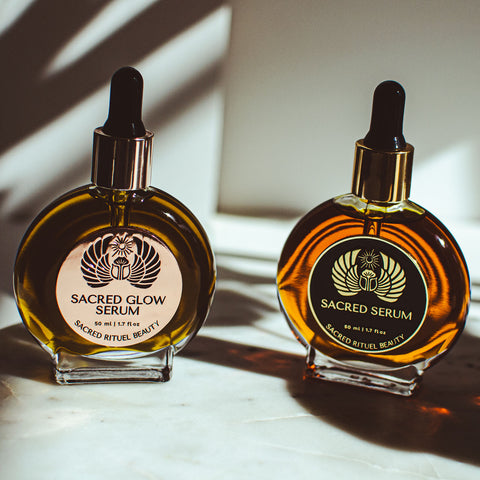
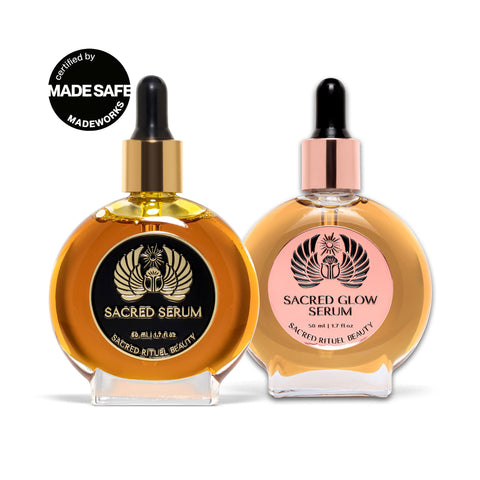
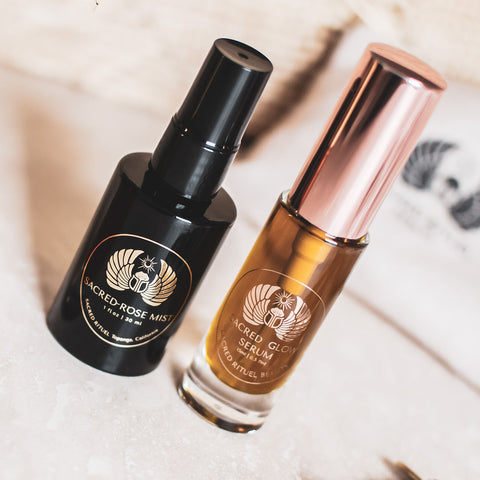
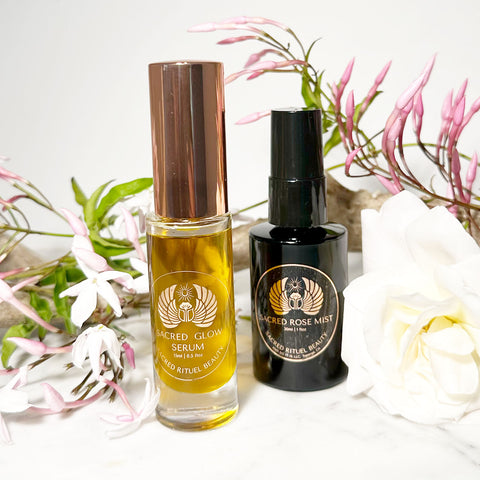

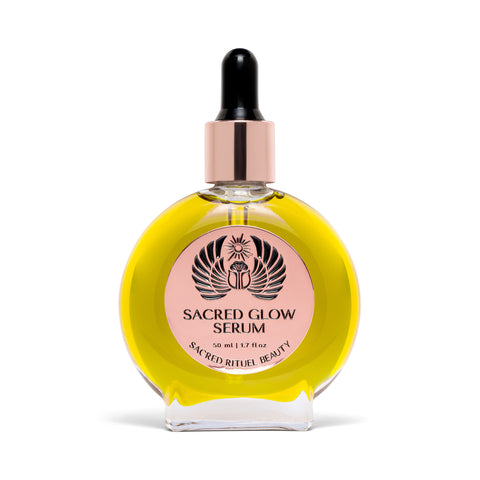
Comments (0)
There are no comments for this article. Be the first one to leave a message!